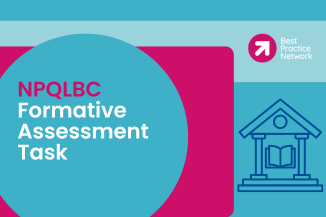
Using expert-led conversations to develop behaviour management skills
Question
Use expert-led conversations to develop behaviour management skills
After considering all of the different coaching techniques, I feel that the model of instructional coaching that is best suited to my school is directive coaching. I feel that this will be most suited because it allows both the teacher and the expert to share their expertise and to work together to set new goals which are achievable and relatable to the setting. The coach and the teacher work closely together to ensure that ideas are shared and that it is not just one person doing all the thinking. This is suited to my school as there are a lot of highly experienced and talented teachers here with lots of different skill sets and this allows them to share with less experienced teachers to ensure that everyone is learning and having the chance to progress with their careers.
I would say that the model of instructional coaching which is not appropriate for the development of my school at the moment is dialogical coaching. I feel this coaching method will not help because it is solely based on the teacher making the decisions and there are some ECTs who will need further guidance and some teachers who have only been teaching for a small number of years who would benefit from ideas from an expert, not by being left to figure it out themselves. This method would not benefit my school as it will not add any confidence to teachers who need it and could possibly make them feel deskilled and to lose morale.
At my school, there are certainly some teachers and members of staff who have the skills necessary to implement the directive coaching method. We have some highly skilled and trained staff members with a wealth of knowledge that would be able to ask those focused and precise questions to ensure that goals are met. They also have the ability to give constructive feedback to further a teacher’s career. There will be some members of staff who might need training to be able to find the confidence and have the knowledge to be able to deliver this type of coaching. I could provide these staff members with training to give them ideas on possible intentional questions. Alternatively, other members of staff might have the opportunity to complete the NPQLBC course themselves so they would then have the knowledge needed to deliver the coaching to other members of staff.
However, I do not think now is the time to implement the directive coaching method at my school. We are currently implementing a new phonics scheme throughout KS1 and are moving from a two form entry school to a one and a half form entry school so our staff members have a lot of other elements to focus on. If I were to implement another new scheme or way of learning, I think that staff cooperation and morale would drastically fall and they would not be willing to put in the full effort and training needed to make it a success. I will certainly keep using my training and, when it is suitable and when all members of staff have securely implemented and achieved the current schemes, I will look into introducing directive coaching to my school.
Want to know more?
If you would like to know more about NPQs and how they can benefit your teaching career, explore the NPQs we offer or get in touch with one of our friendly advisors using the details below:
Email: npq@bestpracticenet.co.uk
Tel: +44 (0) 117 920 9200 (8.30am-5.30pm, Mon-Fri)

